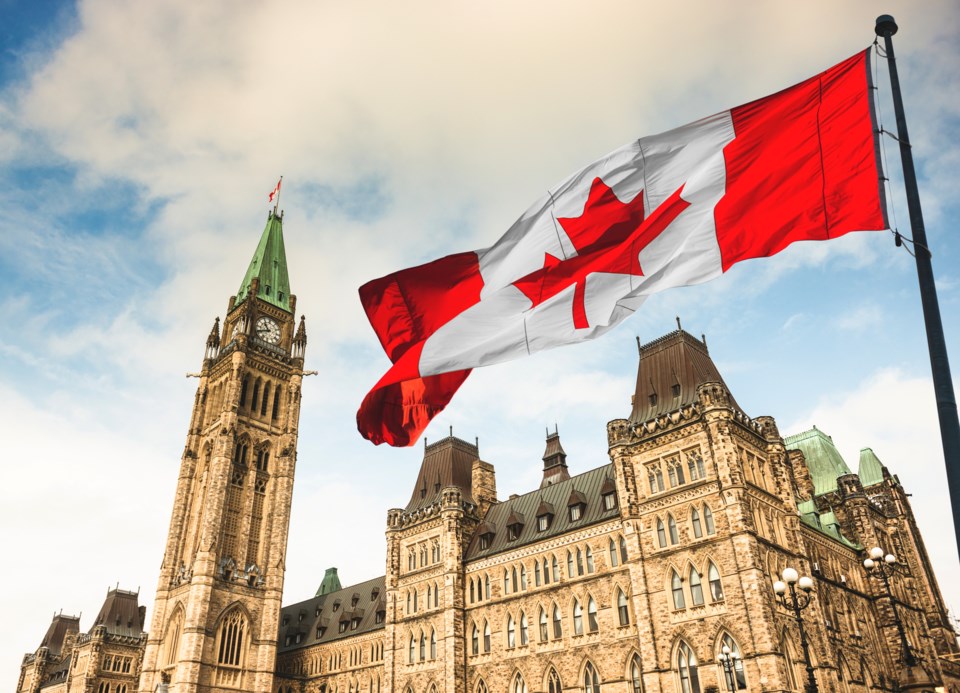The deficit
The Liberal government’s fall economic update shows Ottawa blew past its self-imposed deficit cap.
Chrystia Freeland, who resigned Monday morning as finance minister, pledged last year that she would keep the deficit at or below $40.1-billion. The update tabled Monday puts the figure at $61.9-billion for the fiscal year that ended March 31.
The government says most of this overshoot is because of one-time costs tied to booking contingent liabilities for Indigenous claims.
For the current 2024-25 fiscal year, the update projects a $48.3-billion deficit. Ms. Freeland’s April budget had projected a $39.8-billion deficit for this year.
Fiscal targets
In last year’s fall economic statement, Ottawa laid out three fiscal objectives to guide spending: keeping the deficit for the 2023-2024 fiscal year at or below $40.1-billion; lowering the debt-to-GDP ratio in 2024-2025 and keeping it on a declining track thereafter; and keeping deficits below 1 per cent of GDP in 2026-2027 in future years.
Opinion: The federal government did not meet a fiscal guardrail. So what?
Monday’s document shows the first target was not met, but the other two remain. The update shows the debt-to-GDP ratio on a slight downward trend over time, reaching 38.6 per cent in 2029-30, down from 42.1 per cent in 2023-24.
It also shows the deficit as a percentage of GDP shrinking to 0.9 per cent by the target date of 2026-27, down from 1.6 per cent in the current fiscal year and 2.1 per cent last year.
In the document, the government says it “will continue to focus on the objective of maintaining the deficit below 1 per cent of GDP beginning in 2026-27 and future years,” in addition to its fiscal anchor of keeping the debt-to-GDP ratio on a declining trend.
No funding for the $250 cheques
Prime Minister Justin Trudeau announced a two-part, $6.28-billion plan last month that included $4.68-billion to send most working Canadians $250 cheques in April and a $1.6-billion plan for a two month GST holiday on select items, which took effect Saturday.
The NDP supported the GST break but has held off on supporting the cheques, saying they should go to more Canadians, including retirees and people with disabilities.
Only the $1.6-billion GST break was accounted for in Monday’s update.
Support for business
Following a package of business-focused tax incentives that Ms. Freeland announced Friday, the update includes a plan to extend the Accelerated Investment Incentive at a cost of $17.4-billion over five years.
The program allows companies to write off a large share of the costs of newly acquired capital assets.
$1.3-billion for the border
Ottawa is planning to inject $1.3-billion into enhancing Canada’s borders, after president-elect Donald Trump insisted the government do more to prevent illegal migration and fentanyl smuggling over the shared frontier, or face the imposition of large tariffs on Canadian goods.
The money, spread over six years, is earmarked to support the work of the RCMP, border agents, Canada’s cyberspies and the federal Public Safety department to enforce the border.
Crime
The government is pledging $598-million to buy back guns, as part of a policy to take firearms off the streets set out in legislation that became law a year ago. The $597.9-million, over three years, will go to the Public Safety department and the RCMP to pay owners handing in assault style firearms.
Last week the government announced that 324 additional makes and models of assault-style firearms are now prohibited in Canada.
Housing
Millions of dollars for affordable housing, and to fund more spaces in women refuges, were set out in the fall economic statement. An extra $363-million was earmarked to extend the federal community housing initiative, including to provide direct payments to help low-income tenants with rent above 30 per cent of their household income. The government also announced that it plans to bring forward $50-million to build more women’s shelter spaces, to help women and children fleeing violence, which will be paid for from existing government resources. It said it plans to launch consultations on the development of long-term mortgages.
Terry Fox on the $5 bill
Terry Fox is coming to the $5 bill, the government announced. Mr. Fox, who raised millions for cancer research by running across Canada on his prosthetic leg, will appear on the next $5 bank note. He will replace the face of Sir Wilfrid Laurier, who will move to the next version of the $50 note.




